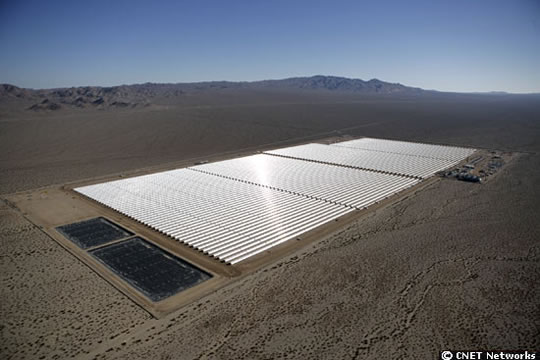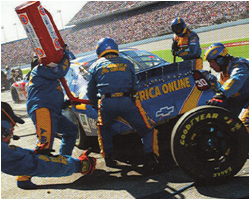Recycled Energy Development - Turning Waste Factory Heat into Useable Energy
RED - Recycled Energy Development, has proven methods for converting the heat that normally goes out factory smokestacks into useful energy. Here's how it works:
We basically use the heat to boil water and make steam, we use the steam to drive a turbine, ... and the turbine drives an electric generator.
Source

The energy can power the factory itself or be fed into the energy grid to power homes. RED estimates that if all the waste heat from US factories and plants were captured it could make up 20% of US energy use, which is roughly the same as 120 coal-fired power plants. That could mean that the US wouldn't need any new coal fired plants, and some existing plants could be taken offline, creating a huge reduction in CO2 emissions as well as other pollutants. If factories can reduce their energy costs, or even make a profit by selling their energy back into the grid, overall manufacturing costs could go down dramatically. That could mean more manufacturing jobs could stay in the US. This is one of those ideas that's so good it's almost frustrating. I strongly recommend downloading the Living On Earth interview with RED chairman, Thomas R. Casten. He discusses some of the challenges with electric congeneration efficiency in the U.S. One of my favorites Quotes in the interview:
CASTEN: I'm an environmentalist who tries to make my living as a capitalist. I want to have those rules be as cost effective and as environmentally effective as possible. My larger comment is that global warming is such a huge problem; it's hard to believe we're going to solve it if our only answer is that people must make sacrifices. We're offering an approach that profitably reduces greenhouse gases and that's much easier to persuade people to do - to go improve their own economic lot and do good. We just need to be a little smarter about how we're doing these things.
Source
RED - Recycled Energy Development via Living On Earth (Download the entire Podcast or just the RED segment)






